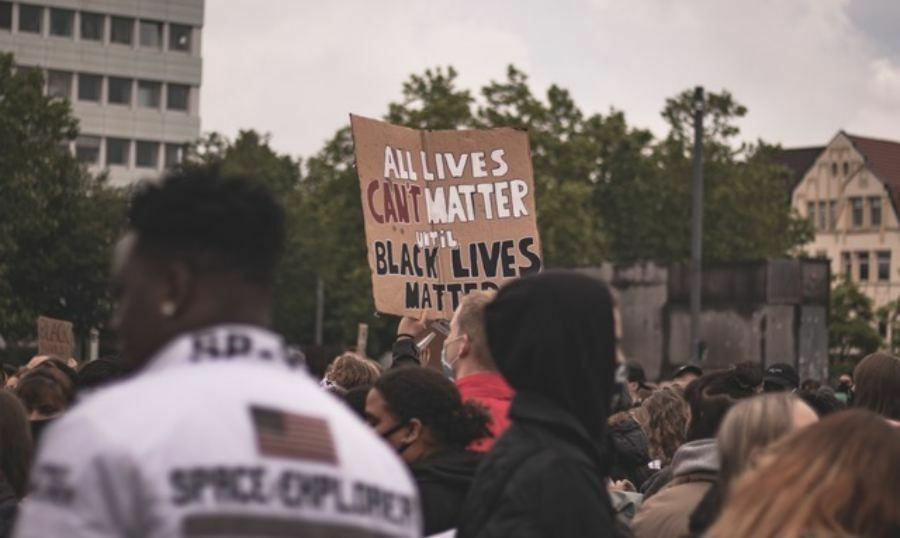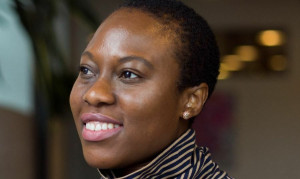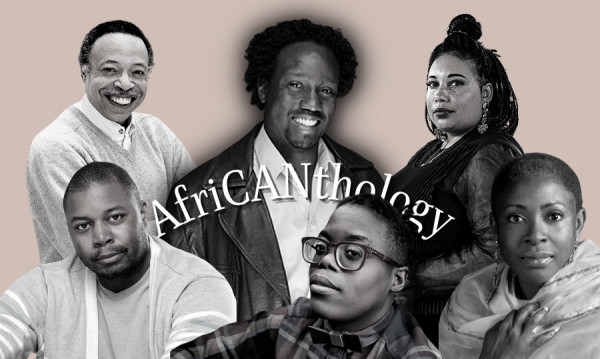The organizers stressed that the meeting was meant to be an open, judgement-free and safe opportunity for dialogue. So I decided to speak openly about the negative experiences I’ve had.
I am both a former membership manager and paying business member of the Whitby Chamber of Commerce. Earlier this year, the WCC was planning an inclusion conference series with the first event focused on accessibility. Once I learned that the lineup was going to be a slate of white faces, I sent a private message pointing out the problematic optics of their confirmed list of speakers. After an attempt to completely brush off my concerns, I was able to finally convince the CEO, Natalie Prychitko, to refer my concerns to the organizing committee. I’ve had every attempt to be heard by Prychitko ignored since then – particularly as it relates to other treatment by representatives of the Chamber. Conversations would suddenly end when I’d enter a meeting room, there would be rule changes for WCC networking events made on the fly to try and block my participation. I even had a member of staff put her hand to the side of her face, “I-can’t-see-you” blinder-style, as she passed where I was sitting in the lobby of the Whitby library – perhaps the most juvenile display I’ve been subjected to in my entire professional career. After I left my role as membership manager I discovered my work was thrown out instead of passed on to my successor.
These aggressions against me (both the macro and micro variety) created a premeditated pattern of exclusion that I wanted to rectify, but the Chamber’s leadership chose to ignore my entreaties to address the problems. Then Julie Armstrong Rennie happened. This is a paraphrasing of the exchange that followed.
Female Black Businessperson: Does anyone have any questions or any comments to add?
Rennie: I’m a former staff member and a current member of the Chamber, and as such I’m offended by your tone when you started talking about our Chamber. I have another previously booked appointment for this time and I have to go in a minute, so don’t go accusing me of running away after I say my piece. The way you spoke was so hostile – it was completely unnecessary and out of line to talk like that. When you started talking about the Chamber, I stopped listening. I don’t need to listen to you when you criticize the Chamber and you have no right to talk about us that way.
Me: I haven’t said anything that isn’t true to my experiences here in Whitby as a Black entrepreneur. It’s not about having worked at the Chamber in the past – it’s about us having the conversations today about the experiences of Black people in this community. I said my comments might be direct and could be received as harsh, but this is exactly the kind of tough and uncomfortable conversations that could come from a session like this. If you’re uncomfortable then that’s probably a good thing. You were warned in advance it might happen.
Rennie: Well, I don’t appreciate your tone and I don’t have to listen to it. This is not the kind of conversation that I need to tolerate. Why should we have to sit through you speaking to us in this way, in such a disrespectful way about a Chamber that does such good work in the community?
Me: George Floyd, Trayvon Martin, Philandro Castile … do I really have to run through the entire list?
At the time Rennie’s comments were made, the other participants on the call remained on mute in shocked silence. Once the Zoom call ended, however, people offended by her words found their voices. One white attendee summarized Rennie’s interjection by posting this on social media: “Just got to witness white privilege in full flight, and it was ugly. Just because a Black person shares their experiences, doesn't mean you get to comment on it or say that it's wrong how they choose to do it...it's not about you Karen, or your hurt feelings...”
Despite numerous complaints from multiple attendees at the meeting on June 3, including an 8-page letter in which I described two years’ worth of unseemly behaviour directed at me by Chamber leadership, the WCC has taken no steps to sanction or remove Rennie from their board. They have stalled for time, hoping the situation will blow over and they won’t have to publicly acknowledge that racial discrimination is an issue for Black business people in Whitby.
The sea change in attitude (if not yet in policy and practice) ignited by the murder of George Floyd on May 25 seems to have missed this town’s business community.
Despite servicing a municipality with a population that is 8% Black (for comparison, Toronto is 8.3% Black), there is little recognition and even less outreach and interaction to Black businesspeople by leading business interests in Whitby. The stereotype of “White-by” is not seriously being challenged by the local powers that be, and they seem not to be particularly interested in addressing it.
The situation here reeks of the comfort that comes from knowing that local power structures are unlikely to be successfully confronted. Other issues, such as boosting women in business in Durham, are safer and less challenging (since the women being promoted are almost all white and middle-aged). However, they should have been paying closer attention to what’s happening with the rise of Black Lives Matter.
People have been swiftly held to account for much less than what is being silently tolerated by the Whitby Chamber of Commerce.
I wonder if the WCC’s corporate and educational partners – 360insights, Bell, Gerdau, HMA, Ontario Power Generation, Royal Ashburn Golf Club, Trent University Durham GTA, Ontario Tech University and Durham College – want to financially and organizationally support a group that refuses to take a zero-tolerance approach to racism within its ranks?
In the eyes of the people who ultimately hold the purse strings, a business association that actively protects a person who publicly denigrates Black businesspeople by telling them their voices don’t matter probably has some explaining to do.
Has the Whitby Chamber, at a politically correct minimum, matched local political leadership in word by publicly stating its commitment to eradicating anti-Black racism? Mayor Don Mitchell declared that Whitby will “stand strong against anti-black, anti-indigenous and any form of racism. It has no place in our community or anywhere in the world.” What did the Chamber add to the public record on this issue? On June 17, the WCC posted a note on their website that pledged to create a committee and put out a Statement on Equity, Diversity and Inclusion. The note claims that “[o]ur intent is to thoughtfully create change. Collectively, we need to do better … While we still have work to do, we stand with you.”
Prove it.
When you look at the staff and board of the organization, the likely reasons for their blind spots become clear. The Whitby Chamber, like many business groups, lacks the diversity of opinions and experiences needed to identify problems early so as to prevent manageable missteps from becoming public relations disasters.
I’m publicly calling them out for their inaction on what should have been a no-brainer to get rid of a publicly racist board member. I’m calling out their sponsors and corporate partners to ask them if they will live their anti-racism declarations of the past month and pressure the Chamber’s board to do the right thing. And I’m calling out all the businesses that are members of the Chamber, to ask them if this is what they want their membership to stand for, particularly in the current sociopolitical environment. In order to protect myself, my family, my reputation and my business interests, I have made a simple decision:
I will not permit the white women who run the Whitby Chamber of Commerce to Amy Cooper me.
Update July 3 2020: Julie Armstrong Rennie has voluntarily resigned.
Greg Frankson is an effective communication specialist, educator, public speaker and award-winning literary artist based in Whitby, Ontario.









